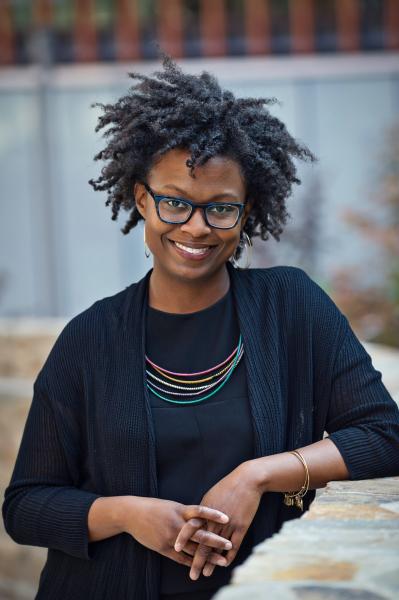EIHS Lecture: An Ambivalent History: Blackness and Homosexuality in the Post-World War II Political Imaginary
Jennifer Dominique Jones (University of Michigan)
Between 2003 and 2015, various media outlets perpetuated comparisons between the intensifying movement for marriage equality and the Modern Civil Rights Movement. Using these comparisons as a starting point, this talk interrogates the ambivalent history of Blackness and homosexuality as mutually referential concepts in American politics from the end of World War II through the 1980s. In doing so, this talk offers a queer political history that troubles popular and historiographical stories we tell about postwar gay and lesbian rights movements, Black freedom struggles and polyvocal opposition to both.
Jennifer Dominique Jones is an assistant professor of history and women's and gender studies at the University of Michigan. Her areas of research and teaching expertise are African American history after 1877 and the history of gender and sexuality in the United States in the twentieth century with a focus on lesbian, gay, bisexual, transgender and queer (LGBTQ) politics and community life. Her forthcoming monograph is Ambivalent Affinities: A Political History of Blackness and Homosexuality After World War II (University of North Carolina Press).
This event presented by the Eisenberg Institute for Historical Studies. It is made possible in part by a generous contribution from Kenneth and Frances Aftel Eisenberg.
Jennifer Dominique Jones is an assistant professor of history and women's and gender studies at the University of Michigan. Her areas of research and teaching expertise are African American history after 1877 and the history of gender and sexuality in the United States in the twentieth century with a focus on lesbian, gay, bisexual, transgender and queer (LGBTQ) politics and community life. Her forthcoming monograph is Ambivalent Affinities: A Political History of Blackness and Homosexuality After World War II (University of North Carolina Press).
This event presented by the Eisenberg Institute for Historical Studies. It is made possible in part by a generous contribution from Kenneth and Frances Aftel Eisenberg.
| Building: | Tisch Hall |
|---|---|
| Event Type: | Lecture / Discussion |
| Tags: | History |
| Source: | Happening @ Michigan from Eisenberg Institute for Historical Studies, Department of History |
The Thursday Series is the core of the institute's scholarly program, hosting distinguished guests who examine methodological, analytical, and theoretical issues in the field of history.
The Friday Series consists mostly of panel-style workshops highlighting U-M graduate students. On occasion, events may include lectures, seminars, or other programs presented by visiting scholars.
The insitute also hosts other historical programming, including lectures, film screenings, author appearances, and similar events aimed at a broader public audience.


